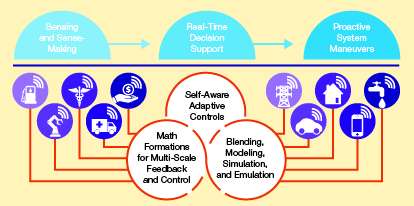Resilience is especially critical in space. As we all know, space is a dangerous place and a constant threat to our mission success. This is because (1) the environment is extremely hostile and unforgiving, where the smallest incident can threaten life and mission; (2) the great distances involved make arrival of timely assistance unlikely; and (3) we have enemies that can and will threaten us in this environment. These, and many other reasons, are why resilience in space must be a focus area.
Our future in space will include a hyper-connected infrastructure with dependencies between digitally controlled elements. This combination of devices and interconnections is far outpacing the ability of humans to fully understand system states and adequately pursue assaults to the system. Our attack surface is expanding, and we need a new approach, autonomic resilience, for our security and resiliency.

Autonomic resilience shifts the perspective from securing individual devices to looking at complex interdependent systems holistically. We must drive science to understand holistic system behaviors that can indicate either a good state (resiliency) or abnormal behavior—such as disturbances caused by natural hazards, deliberate attacks, or a combination of assaults on a system. In the end we need to be able to sense what is happening, model potential futures, and maneuver to avoid or lessen the effect of an assault before that assault occurs. We must do this in fractions of a second. And because human operators must trust these systems, the decision-making inside autonomic resilience must be transparent and understandable
by humans.
Autonomic resilience is critical to our national security in space and on Earth. Pacific Northwest National Laboratory is developing a technology capability roadmap with partners and key decisionmakers. PNNL hopes to inspire a multidisciplinary call to arms for innovative, effective research programs that will enable
autonomic resilience.
This story appears in the December 2020 issue of Getting It Right, Collaborating for Mission Success.

